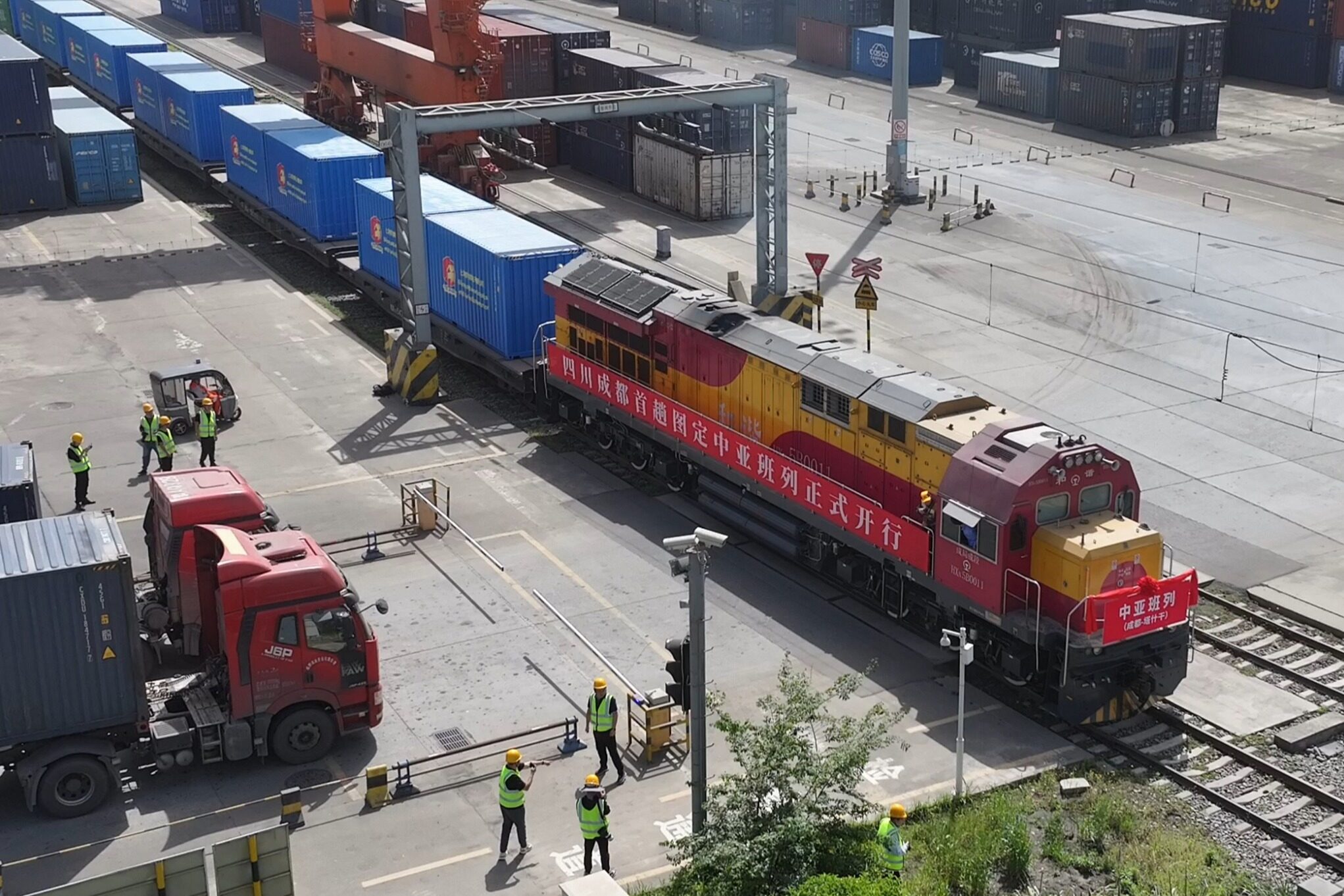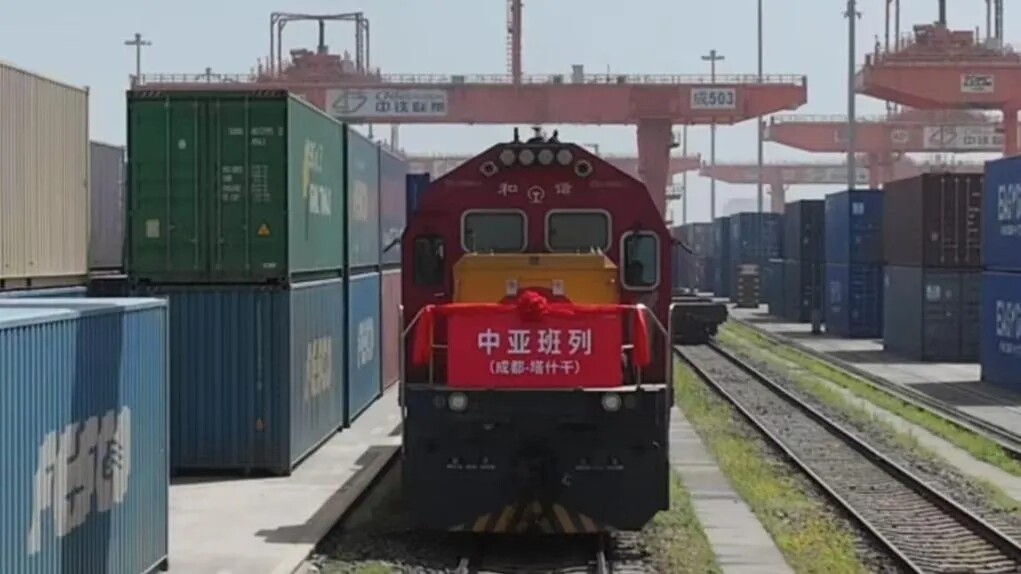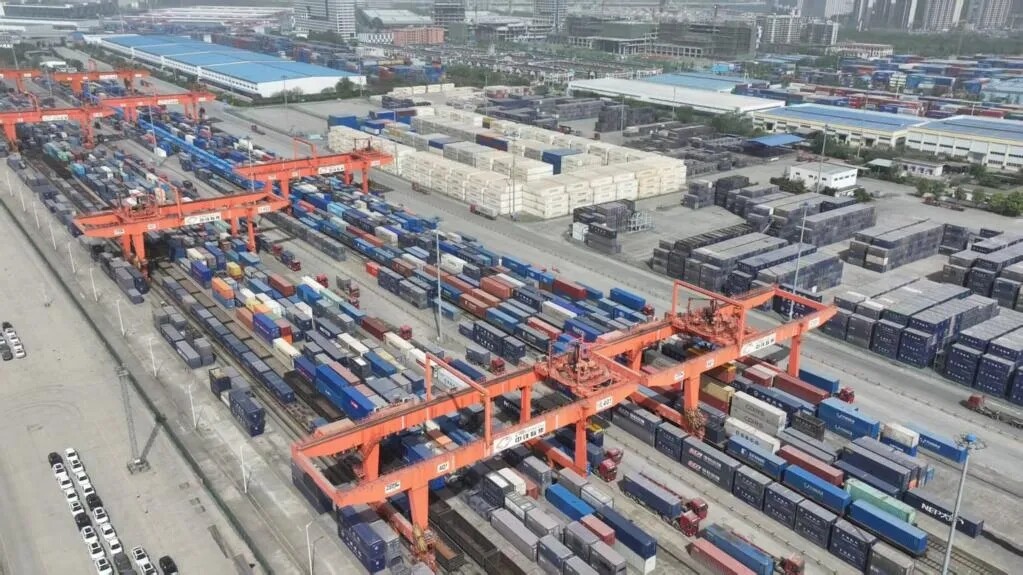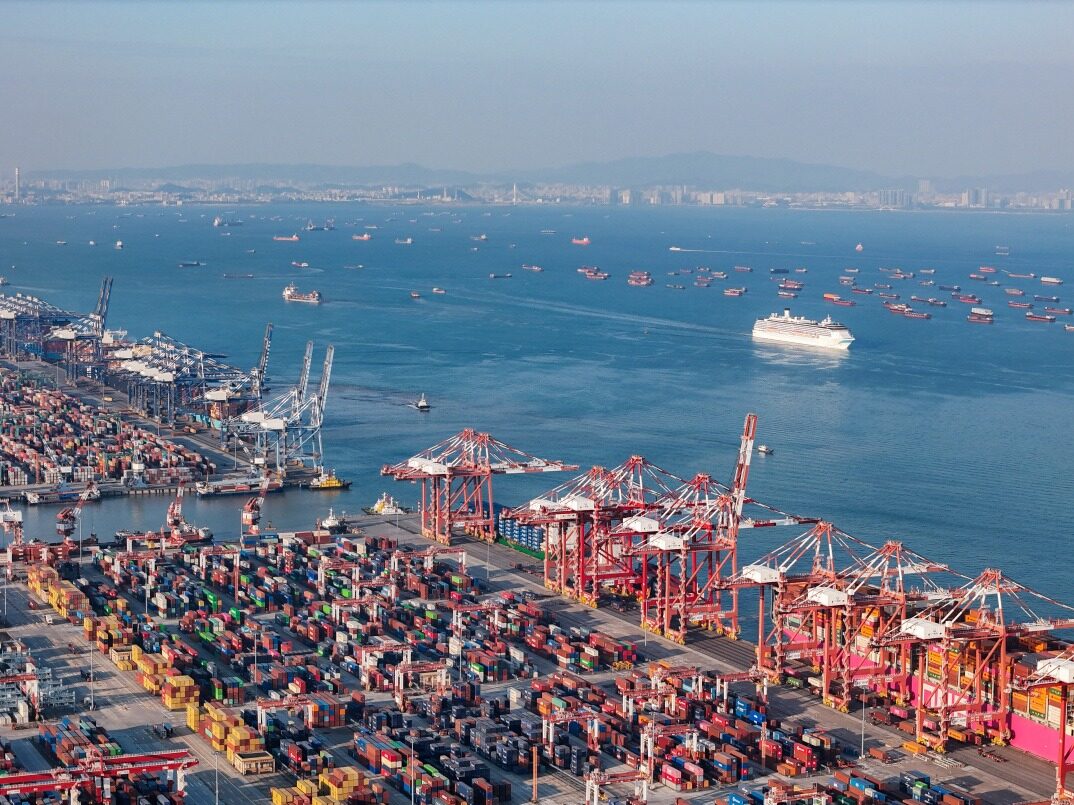- The operation of this freight train to Central Asia has ensured the stability of the freight transportation channel in Central Asia

The regularly scheduled freight train to Central Asia, which made its maiden voyage from Chengdu, officially started operation on April 13 and will run at a fixed time every Sunday starting from this week. This is of great significance for ensuring the stability of the freight transportation channel from southwest China to Central Asia.
On the morning of the 13th, a freight train to Central Asia loaded with 47 carriages of various goods, including white cardboard, home appliances, and general merchandise, departed from the Chengdu International Railway Port and headed for Tashkent, Uzbekistan. The total value of the goods on this train is nearly 14 million yuan, and the total weight of the goods is approximately 3,200 tons. The train will exit the country through the Horgos Port and is expected to arrive in Central Asian countries such as Uzbekistan in about 10 days, with the whole journey being approximately 4,800 kilometers.

"Most of the railway freight transportation in the past adopted a sporadic shipping method where goods waited for the train. Scattered goods needed to be transshipped multiple times, making it difficult to control the timeliness and cost. There is a strong complementary demand between the Chengdu market and the Central Asian market, and the exchanges of goods are increasing day by day. It is imperative to operate freight trains at fixed times," said Gou Jun, General Manager of Sichuan Shanxiang Shidai Supply Chain Management Co., Ltd., the organizer of the train. International trade enterprises can lock in the shipping space and freight rate in advance, and the logistics efficiency and stability have been significantly improved. In the next step, efforts will also be made to explore the operation of special trains with features such as cold chain transportation and cross-border e-commerce.

It is reported that in recent years, Sichuan has focused on the opening-up channels connecting the major economic regions of the Eurasian continent. By enhancing the cargo distribution capacity of the international trade hubs for air, railway, and road transportation, Sichuan has comprehensively improved its international economic cooperation capabilities and is playing an increasingly important role among economies such as Europe, Central Asia, and the Association of Southeast Asian Nations (ASEAN). (This article is from the official website of Seetao.com, www.seetao.com. No reprinting is allowed without permission. Otherwise, legal liability will be pursued. If reprinting, please indicate Seetao.com + the original text link.) Editor of the Strategic Column of Seetao.com / Yin Shiqian
Comment
 Praise
Praise
 Collect
Collect
 Comment
Comment
 Search
Search














Write something~